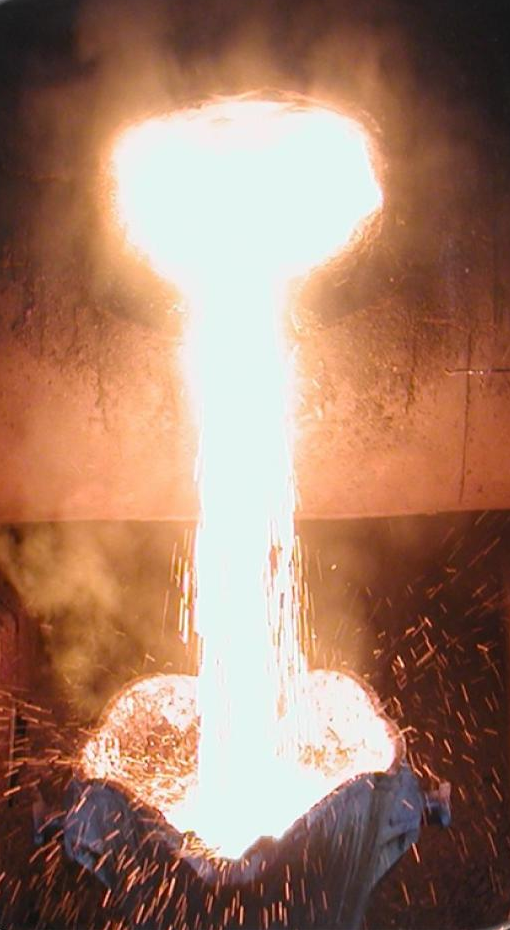A most misunderstood doctrine: Purgatory
 Today I’d like to look at one of the most misunderstood doctrines of the Catholic Faith: Purgatory.
Today I’d like to look at one of the most misunderstood doctrines of the Catholic Faith: Purgatory.
I’m not going to try and give a thorough theological treatment of this doctrine; others infinitely more qualified than I have done that. Rather, I would just like to offer a few thoughts that have helped me in my own acceptance and understanding of this teaching.
The doctrine of Purgatory is something that a lot of non-Catholics struggle with, yet in an odd twist, it was actually one of the first Catholic doctrines I came to hold during my return journey to the Catholic Church. I came to believe in it because it’s a doctrine that is beautiful, Scriptural and profoundly logical.
Odd Ideas
Unfortunately, it’s also one of those doctrines which is often poorly understood. For example, I’ve come across Catholics and ex-Catholics who were under the impression that Purgatory is basically Hell, or that Hell is still a possibility for those in Purgatory. The Catholic Catechism denies both of these ideas, saying:
“[Purgatory is a] purification, so as to achieve the holiness necessary to enter the joy of heaven… [It is experienced by those]…who die in God’s grace and friendship, but [who are] still imperfectly purified… This final purification of the elect…is entirely different from the punishment of the damned”
– CCC 1030-1031
The common objection you hear from non-Catholics is “But ‘purgatory’ isn’t even mentioned the Bible!” And they’re right. The word “purgatory” does not exist in the Bible, but then again, neither does “Trinity” nor “Hypostatic Union”, yet all mainstream Christians believe in both of these doctrines. A simple word-search is not enough to understand this teaching…
Fit For Heaven
The root of this doctrine lies in something which can easily be observed in the life of every Christian. Although we have been washed clean by God’s Grace in baptism…we still sin. Although we have been infused with the Holy Spirit…we still find sin attractive. Although we celebrate and receive divine life in the Eucharist….we still have disordered desires (“concupiscence”) and continue, at least to some degree, to place created things ahead of the Creator. We so often fail to love God with our whole heart, mind and strength. We do not always love our neighbour as ourselves…
Clearly, some kind of purification must take place in us before we can enter heaven since “…nothing unclean shall enter heaven” (Revelation 21:27). This process of purification is what the Catholic Church calls “Purgatory”:
“But you have come to Mount Zion and to the city of the living God, the heavenly Jerusalem…and to the spirits of just men made perfect…”
– Hebrews 12:22-23
It is in Purgatory that those who died in friendship with God (“just men”) are purified (“made perfect”) for heaven (“the heavenly Jerusalem”).
Refiner’s Fire
In writing the above, I can’t help but think of my own family…
There are two members of my family who, after a significant falling-out, no longer speak to one another. Yet they both profess faith in Christ. If these two people end up together in Heaven while remaining in their current state, I’m pretty sure Heaven won’t remain “heaven” for very long… I am certain that a work of God’s grace must take place within both of their hearts before they’ll be ready to worship before the same throne.
When this happens it will not be a pleasant experience for either one of them, just as the process wouldn’t be painless if they reconciled while alive on earth. Letting go of pain is often painful in and of itself. However, I fail to see how such hurt could be carried with them past Heaven’s gates. Rancid wounds must be lanced if they are to heal…
The Beauty
There is much more to say about Purgatory, but this post is already a bit long. Instead, I will end here with some words from one of my favourite non-Catholic Christian writers, CS Lewis :
“Our souls demand Purgatory, don’t they? Would it not break the heart if God said to us: ‘It is true, my son, that your breath smells and your rags drip with mud and slime, but we are charitable here and no one will upbraid you with these things, nor draw away from you. Enter into the joy’? Should we not reply, ‘With submission, sir, and if there is no objection, I’d rather be cleaned first.’ ‘It may hurt, you know’ – ‘Even so, sir.’
“I assume that the process of purification will normally involve suffering. Partly from tradition; partly because most real good that has been done me in this life has involved it. But I don’t think the suffering is the purpose of the purgation… The treatment given will be the one required, whether it hurts little or much.
“My favorite image on this matter comes from the dentist’s chair. I hope that when the tooth of life is drawn and I am ‘coming round’,’ a voice will say, ‘Rinse your mouth out with this.’ This will be Purgatory. The rinsing may take longer than I can now imagine. The taste of this may be more fiery and astringent than my present sensibility could endure. But . . . it will [not] be disgusting and unhallowed.”
– C.S. Lewis, Letters to Malcolm, Chiefly on Prayer

Purgatory does not even exist. It was invented by an old pope calling himself ‘innocent IIIrd’.
Belief in such idiocy only places Jesus at the back door, implying He left some things unfinished when He died on that cross.
HE procured our salvation and assurance of Heaven by HIS SACRIFICE. Purgatory is nothing more than feeble imagination by an arrogant old pope who insisted everyone would believe it, or be burned to death as a so-called ‘heretic’.
Can you interact with the points made in the post?
This is an excellent summary/defense of purgatory. I also enjoyed the troll post about Pope Innocent III.
Thanks
Gotta love the trolls…
I’ve just finished reading a book by Jennifer Fulwiler where she uses a similar line of argumentation for the logical necessity of purgation after death:
“The Catechism basically said: If you’re a believer and a jerk, you don’t walk right in to heaven after you die. ‘All who die in God’s grace and friendship, but still imperfectly purified, are indeed assured of their eternal salvation; but after death they undergo purification, so as to achieve the holiness necessary to enter the joy of heaven.” Heaven is the place of perfect good and perfect love. To enter it while in a disposition of selfishness or hatefulness or unkindness would be like entering into a gleaming clean house with muddy boots; the house would not be clean anymore” -Jennifer Fulwiler, Something Other Than God
Thank you for this – PAX
You’re welcome